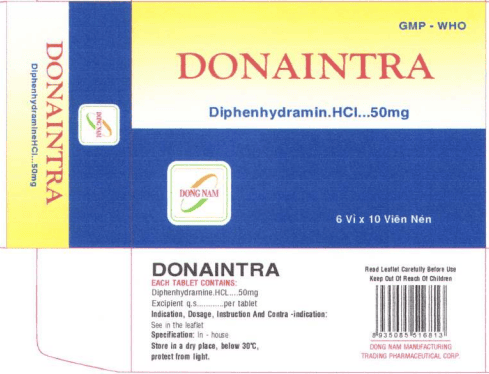This is an automatically translated article.
Alpha-gal syndrome is a rare condition worldwide. The patient develops an allergic reaction to food every time he eats animal meat, mainly red meat. The cause stems from the patient being bitten by a Lone Star beetle, whose saliva contains Alpha-gal.
1. What is Alpha-gal Syndrome?
Alpha-gal syndrome is a type of food allergy to red meat. In the United States, this phenomenon is usually caused by the bite of the Lone Star beetle, which transmits a sugar molecule called Alpha-gal into the patient's body. In some people, this triggers a particular immune response, leading to mild to severe food allergies when eating red meat.
The Lone Star beetle (also known as the lone star beetle, Amblyomma americanum) is found mainly in the southeastern United States, and most cases of Alpha-gal syndrome occur in the area. this area. However, the condition appears to be more widespread north and west of the United States. Alpha-gal syndrome has also been detected in Europe, Australia and Asia, where other bugs have also been found to carry the Alpha-gal molecule.
Currently there is no cure for Alpha-gal syndrome, patients must actively avoid eating red meat. For prevention, it is necessary to protect the body, avoid the bite of bugs that carry Alpha-gal. Protect against ticks by wearing long pants, long-sleeved shirts, and using insect repellent when working and operating in wooded, grassy areas.
2. Symptoms of Alpha-gal

Phát ban, ngứa là những triệu chứng cơ bản của Alpha-gal
Signs and symptoms of an Alpha-gal allergic reaction usually appear later than with other types of food allergies. Most common food allergies, such as those to peanuts or seafood, occur within minutes of exposure. For Alpha-gal syndrome, signs usually appear only 3 - 6 hours after eating red meat, including:
Rash, itching, scaly skin (eczema); swelling of the lips, face, tongue, throat, or other parts of the body; Wheezing or difficulty breathing; Have a runny nose; Abdominal pain, diarrhea, nausea or vomiting; Sneezing; Headache ; Anaphylaxis - a serious, potentially fatal, allergic reaction. Doctors think that the long gap between when red meat is eaten and when an allergic reaction occurs is one reason alpha-gal syndrome is missed in the allergy diagnosis process.
3. Risk factors
For people with Alpha-gal syndrome, which mainly occurs in the southeastern United States and parts of New York, New Jersey and New England. People living in other parts of the world are at increased risk of Alpha-gal syndrome if:
The nature of the job involves spending a lot of time outdoors; Being bitten by many bugs, especially the Lone Star beetle; There are mast cell abnormalities such as indolent systemic mastocytosis (ISM). In addition to the United States, Alpha-gal syndrome has been reported in many other parts of the world such as Europe, Australia, and parts of Asia. Certain types of ticks that carry the alpha-gal molecule appear to also increase the risk of the disease.
4. Complications when allergic to red meat
Alpha-gal syndrome can complicate anaphylaxis due to food allergies. Emergency treatment for this condition requires an injection of epinephrine (adrenaline) and immediate referral to a medical facility's emergency room.
Signs and symptoms of food allergy anaphylaxis include:
Respiratory failure; swelling of the throat, leading to difficulty breathing; Severe drop in blood pressure (shock); Rapid pulse; Dizziness, dizziness, even loss of consciousness. Based on recent research, doctors believe that some people who experience frequent unexplained anaphylaxis may be living with undiagnosed Alpha-gal syndrome.
5. Treatment of Alpha-gal . syndrome

Điều trị hội chứng Alpha-gal chủ yếu là tránh ăn thực phẩm gây kích hoạt phản ứng dị ứng, cụ thể ở đây là thịt đỏ
As with any type of food allergy, treatment for Alpha-gal syndrome is primarily to avoid eating foods that trigger an allergic reaction, specifically red meat. Always check the ingredient labels on store-bought foods and make sure they don't contain red meat or ingredients derived from red meat. Check for soups, sauces, and condiments in prepackaged products as well. Consult your doctor for more on this list of foods to avoid, including those of meat extracts used in flavoring. Their names may be difficult for most consumers to recognize.
Use caution when dining at restaurants and party gatherings. Many people don't fully understand the severity of food allergies and don't even know that red meat allergy syndrome exists. If you are worried about whether a certain food is likely to cause an allergic reaction for you, do not try it at all. If you have to share a meal with many people, it is best to prepare your own servings.
When experiencing a severe food allergic reaction, the patient should receive an emergency injection of epinephrine and go to the emergency room immediately. Many people with Alpha-gal syndrome carry an auto-injector of epinephrine for self-rescue in the event of an emergency. When diagnosed with Alpha-gal syndrome, a doctor may prescribe this autologous form of the drug to the patient.
The symptoms of Alpha-gal syndrome may lessen or even disappear over time if the patient does not suffer further bites from ticks carrying Alpha-gal. Some people with this disease are able to eat red meat again after 1-2 years of living with the disease.
6. Prevention of Alpha-gal . syndrome
The best way to prevent Alpha-gal syndrome is to avoid going into areas where ticks live, especially wooded, dense, grassy areas. You can reduce your risk of Alpha-gal syndrome with a few simple precautions:
Wear tight clothing: When entering wooded or grassy areas, wear closed-toed shoes, long pants, and tights. in socks, a long-sleeve shirt, a hat, and gloves. Try to follow the trails, avoiding walking through thick bushes and long grass; Use insect repellent: Use insect repellent products suitable for your skin. Parents should apply medicine to children, avoiding hands, eyes and mouth. Medicines contain chemicals that can be harmful to children's health, so follow the manufacturer's instructions; Clean the yard, clear the bushes, clear the places with lots of leaves, often where ticks live. Logs should be carefully preserved to avoid attracting insects; Clean your body when entering the house. Ticks can stay on your skin for hours. Bathing and using washcloths can remove ticks from the skin; When a tick is found on a person, it should be removed as soon as possible with tweezers. Gently grasp the part near its head or mouth, do not squeeze or crush it until it has been removed from the body. Apply an antiseptic if bitten by a bug. If you notice symptoms of an allergy to red meat, you most likely have Alpha-gal syndrome due to being bitten by a bug that carries the allergen molecule. This case requires an accurate diagnosis, appropriate treatment and prevention.
Please dial HOTLINE for more information or register for an appointment HERE. Download MyVinmec app to make appointments faster and to manage your bookings easily.
Reference source: Mayoclinic.org












